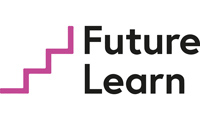
FutureLearn’s new report shows that people turn to online courses to upskill for new careers
Flexibility is the number one feature that learners seek in higher education, said Ian McIlwain, vice-president of partnerships and business development at digital education platform FutureLearn.
“It’s not just about the flexibility of how, when and where to learn,” McIlwain told a session at THE Digital Universities Week UK 2022. “It is also about the flexibility that comes with personalisation and the pace at which people choose to learn.”
McIlwain outlined the findings of FutureLearn’s The Future of Learning Report 2022, launched in March. The report surveyed the motivations, attitudes and behaviours of about 2,000 UK learners and more than 500 UK-based employers and also included insights from 10 education experts.
“‘Flexible’ is not the same as remote learning,” said Astrid deRidder, vice-president of content and learning at FutureLearn. “According to the report, learners want to learn remotely, from home, on the device of their choosing, but it is also about the scope, sequence and pacing.
Kiran Trehan, pro vice-chancellor of partnerships and engagement and director of the Centre for Women’s Enterprise, Leadership, Economy and Diversity at the University of York, warned that students would ultimately vote with their feet and choose institutions that respond to their needs.
“This report engages deeply with the community, and learners are saying: ‘This is how we want to learn,”” Trehan said.
While students wanted more flexibility, almost one in five said they lost motivation quickly when learning online, the report found.
Trehan said this loss of motivation was a challenge for educators. “We’ve got to design [virtual] space, and [recognise that] virtual spaces are not the same as face-to-face,” she said.
Another complex issue is that online spaces can make learning more accessible, but technology can also be a barrier, the panellists said. “Technology can be a solution to barriers but can also exacerbate or scale problems if we are not looking for them or do not anticipate them,” said McIlwain.
Nevertheless, demand for online remote learning continues to grow. One in five respondents said they had changed their career during the pandemic, and of those respondents, more than 80 per cent said an online course had helped them to achieve that change, the report found.
Additionally, one in three respondents chose online learning as their preferred means of acquiring new skills.
“That’s why we’re building what we’re building [at FutureLearn] and doing what we’re doing,” said McIlwain. “It’s about access and opportunity.”
Find out more about FutureLearn.


